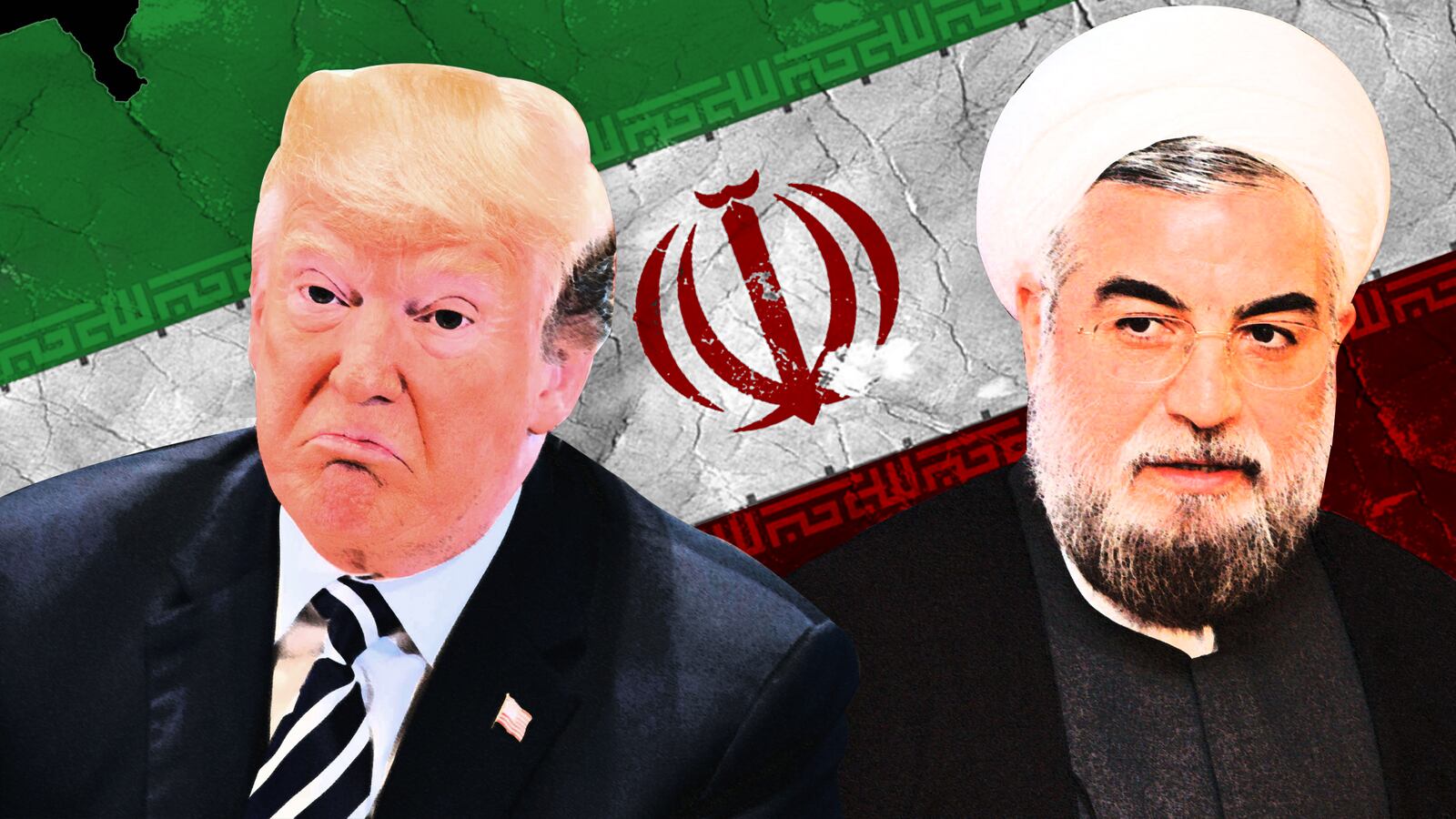Iranians have good reason to be angry about Donald Trump’s decision to violate the terms of the Joint Comprehensive Plan of Action (JCPOA), the Iran nuclear deal. After all, Iran has kept to its obligations; thanks to Trump, the United States has not.
Trump’s speech was venomous, vindictive not factual, and it was also clear that the real source of his hatred is not Iran, but Barack Obama. So, while Tehran’s anger is justified, that is rarely a good basis for action. At this stage, Iran would do well to think strategically before fashioning a response.
Iran entered in the JCPOA—which involved commitments beyond those required by the Nuclear Non-Proliferation Treaty—for two main reasons. First, to gain relief from crippling economic sanctions and, second, to end its international isolation. Both goals are still achievable and, with the right strategy, Iran may end up in a stronger position internationally than at any time since the creation of the Islamic Republic.
The United States is not a significant source of trade or investment for Iran. Being unable to sell or buy directly from the United States will not have a big impact on the Iranian economy. The problem for Iran is the so-called secondary sanctions—the inability of non-American companies to access the American market or use the U.S. banking system if they do business with Iran.
But, secondary sanctions are a game that two can play. The European Union collectively has an economy larger than that of the United States. China, also a party to the JCPOA, is the world’s second largest economy. If the United States can use secondary sanctions on European and Chinese businesses to promote its foreign policy objective of hurting Iran, the Europeans and Chinese can retaliate with secondary sanctions aimed at preserving the agreement.
Iran might reasonably work with Europe, China and Russia to foil U.S. secondary sanctions. Such arrangements might even enhance the economic value of the nuclear deal to Iran since many European companies were unwilling to invest in Iran under the JCPOA because of remaining (not nuclear related) U.S. sanctions.
Iranians were understandably disappointed that the European signatories to the JCPOA seemed supportive of Trump’s desire to renegotiate the deal. Of course, the European leaders knew full well this would not happen. Their statements of support for Trump’s goals were simply part of an effort to get him to stay with the deal. With the US out of the deal, France, Germany and the U.K. will have to persuade Iran to stay in. This puts Iran in the position of being able to demand additional concessions on economic and security issues.
Iran’s second goal in signing up to the JCPOA was to end its international isolation, an isolation orchestrated by the United States. Here Donald Trump is Iran’s best friend. In the eyes of many—including America’s allies—it is the United States that is the rogue nation. By all accounts—including US intelligence—Iran was abiding by the JCPOA. Iran kept its word; under Trump, the United States did not.
French President Emmanuel Macron invested more than any foreign leader in developing a relationship with Donald Trump. In 2017, he invited Trump to the Bastille Day celebrations and put on the kind of grand reception of which only the French are capable. The easily flattered Trump was flattered. (By contract, UK Prime Minister Theresa May had to back off her invitation for a Trump state visit. The US president is so toxic in Britain that a visit could bring down her minority government.).
There was nothing that Macron wanted to accomplish more than to persuade Trump to stay in the Iran deal. He failed as he said for U.S. domestic reasons (i.e. Trump’s obsession with humiliating his predecessor). Indeed, Macron has nothing to show for his cultivation of Trump—not on the environment, trade, or anything else. Almost certainly, he will now try a different tack. With the United States itself isolated, the French president is the natural leader of Europe and the free world. And to accomplish Europe’s objectives, Macron will now likely chart an independent course. And, almost certainly part of that will be to find ways to keep Iran in the JCPOA.
In Trump’s speech, he complained that the JCPOA had no limits on Iran’s “other malign behavior, including its sinister activities in Syria, Yemen, and other places all around the world.” While it is true that the Trump Administration has given Saudi Arabia’s impulsive crown prince a blank check to commit mass murder in Yemen, Trump has also said he will pull out U.S. forces from Northeast Syria. Iran’s stated goal in Syria is for its ally Bashar Assad to retake all Syrian territory. Assuming Trump does withdraw U.S. troops, he will go a long way toward making that possible. And while Trump didn’t mention Iraq, he has helped Iran there as well.
In October, Trump permitted a Shiite militia operating under the direction of Iran’s Quds Force Commander Qassem Soleimani to use U.S.-supplied Abrams tanks to attack the Kurds—America’s one reliable military partner in Iraq. (The militia was led by Abu Mahdi Muhandes who was convicted of blowing up the U.S. Embassy in Kuwait in 1983; while the Trump Administration allowed Muhandes to use U.S. tanks, it refused to supply them to the Kurdistan peshmerga).
In anger, Iran might be tempted to pull out of the JCPOA. This is exactly what Trump hopes will happen. It would put Iran on the same level as the U.S. By remaining in the agreement, Iran is in a position to extract significant economic concessions from Europe as well as support from China. Trump will continue to support Iranian regional goals in Iraq and Syria, although not Yemen. And, an ever more isolated Trump will continue to diminish U.S. leadership in the world.
Iranians might consider a simple point: when your enemy is about to jump off a tall building, there is no need to push.






